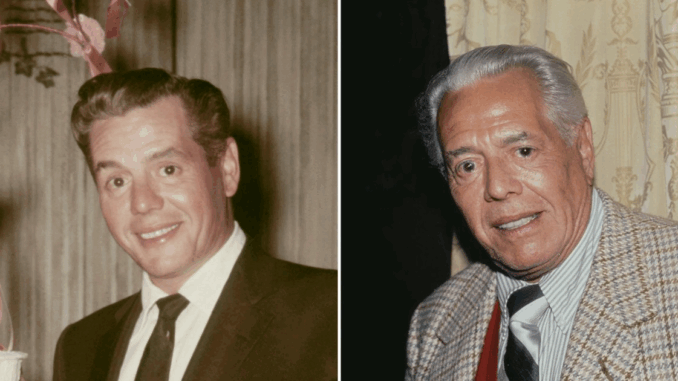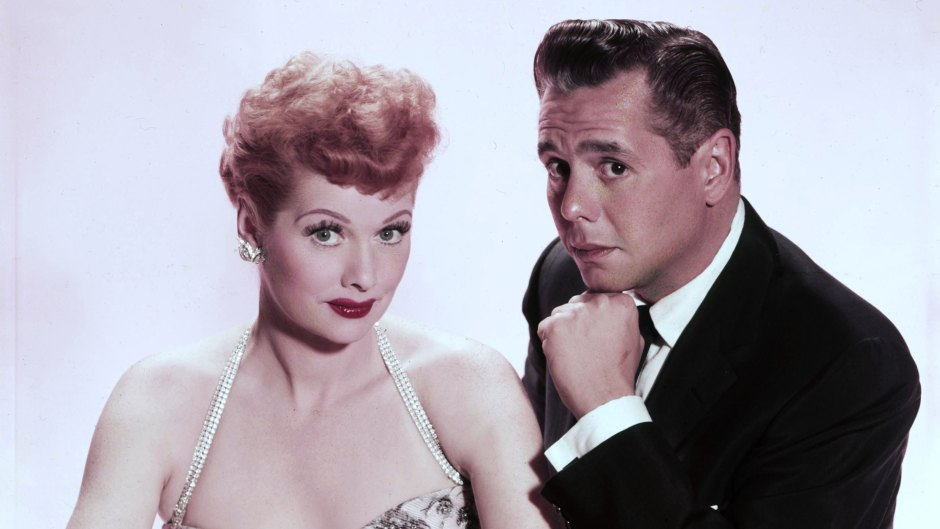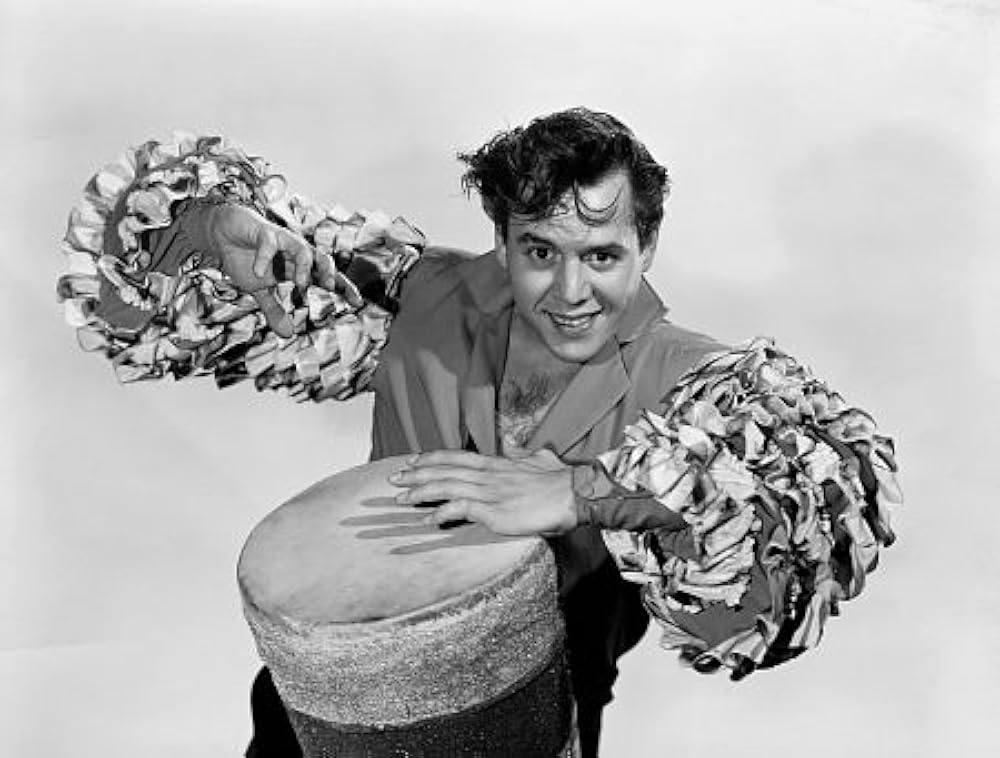
Desi Arnaz forever immortalized as Ricky Ricardo in the classic sitcom I Love Lucy, was far more than just a charismatic actor with a Cuban accent and a knack for comedic timing. After I Love Lucy ended in 1960, many assumed that his career would fade with the end of the show. But Desi Arnaz proved to the world that he was not merely a performer—he was a visionary who reshaped the entertainment industry from behind the scenes. The post-I Love Lucy years marked a powerful transformation in his life, one that solidified his role as a pioneering producer, innovator, and cultural trailblazer.
Contents
Building a Media Empire: Desilu Productions

Even before I Love Lucy ended, Desi Arnaz had already laid the foundation for his second act. In 1950, alongside Lucille Ball, he co-founded Desilu Productions. This decision would go on to change the landscape of American television. When I Love Lucy wrapped, Arnaz took on a more executive role at Desilu and began to expand the studio into one of the most powerful independent production companies of its era.
Under Arnaz’s leadership, Desilu produced several landmark television series that shaped American culture in the 1950s and beyond. These included:
-
The Untouchables (1959–1963): A gritty crime drama that was ahead of its time.
-
The Lucy-Desi Comedy Hour (1957–1960): A continuation of his work with Lucille Ball.
-
Early development support for Star Trek and Mission: Impossible, which would later be fully realized under Lucille Ball after Arnaz’s departure.
These shows were not only commercial hits but also groundbreaking in format and theme. Desi Arnaz had a unique ability to recognize storytelling potential, and he was willing to invest in bold, new ideas that others deemed too risky.
Television Innovation at Its Finest

Desi Arnaz was not just a businessman—he was an inventor in spirit. He helped revolutionize television production by championing the use of multi-camera filming in front of a live studio audience, a technique first perfected on I Love Lucy. This innovation created a more dynamic and engaging format that quickly became the industry standard for sitcoms.
Desi Arnaz also pioneered the concept of syndication, understanding early on the long-term value of retaining ownership of episodes. By negotiating the rights to rerun I Love Lucy, Arnaz essentially invented the television rerun market, opening the door for future shows to continue earning revenue long after they had finished production.
These business insights were not only profitable but visionary, transforming how television shows were produced, distributed, and monetized. Arnaz wasn’t just thinking about entertainment—he was designing the television industry of the future.
Personal Struggles and Departure from Desilu
Despite his business brilliance, Arnaz’s personal life during this time was complex and filled with challenges. The immense pressure of managing Desilu, dealing with public scrutiny, and the eventual breakdown of his marriage to Lucille Ball took a toll on him. In 1962, just two years after I Love Lucy ended, Arnaz sold his interest in Desilu to Ball, effectively removing himself from the company he had built.
Though he stepped away from studio leadership, Desi Arnaz did not vanish from public life. Desi Arnaz appeared in a few acting roles and even returned to the stage occasionally. More importantly, he began working on a deeply personal project: his autobiography.
A Book and a Voice for the Industry
In 1976, Desi Arnaz published his autobiography, simply titled A Book. In it, he spoke candidly about his childhood in Cuba, his family’s exile, his rise to stardom, and the pain of his divorce. The book was widely praised for its honesty and insight, offering a rare glimpse into the mind of a man who helped shape modern television. A Book also served to remind the world that Arnaz’s story was far greater than the sitcom character he portrayed.
Throughout the 1970s and 1980s, Arnaz remained a respected figure in Hollywood. Desi Arnaz served as a mentor to young producers and actors, often providing behind-the-scenes guidance based on decades of hard-won experience. Though he had left the spotlight, his wisdom and presence were still deeply felt.
Desi Arnaz’s Final Years and Passing

In his later years, Arnaz retired to Del Mar, California, where he lived a quieter life with his second wife, Edith Mack Hirsch. Despite staying out of the limelight, he continued to engage with fans and reflected on the remarkable career he had forged—both as a performer and as a businessman.
Sadly, in the early 1980s, Arnaz was diagnosed with lung cancer, likely linked to decades of heavy smoking. On December 2, 1986, Desi Arnaz passed away at the age of 69. His final words reportedly included expressions of love for Lucille Ball, and the two remained close friends despite their divorce decades earlier.
The news of his passing sent waves through the entertainment world. Tributes poured in from across the country, honoring a man who had not only made America laugh but also transformed how television was created and consumed.
Desi Arnaz’s Lasting Legacy
Even in death, Desi Arnaz’s legacy continued to grow. He is remembered not just as the charming Ricky Ricardo, but as a true innovator who broke barriers—both cultural and technological.
-
As a Cuban-American, he was one of the first Latino stars in mainstream American media, paving the way for generations of Hispanic performers.
-
As a producer, he forever changed how television shows are made and monetized.
-
As a man, he embodied resilience, reinvention, and creativity under pressure.
Today, I Love Lucy is still watched around the world. The reruns that Arnaz helped make possible are a constant reminder of his brilliance. His name is studied in media classes, and his production methods are still the foundation of sitcom formats more than 60 years later.
Conclusion: A True Giant of Television
Desi Arnaz’s life after I Love Lucy was not a decline—it was an elevation. He transformed himself from actor to mogul, from immigrant exile to industry titan. His story is one of vision, reinvention, and cultural triumph. Though he passed away nearly four decades ago, his spirit continues to live on in every laugh track, every multi-camera sitcom, and every rerun that finds a new audience.
Desi Arnaz proved that genius doesn’t fade with the final curtain—it evolves, endures, and inspires.
See more at KpopAll and fanpage I Love Lucy Fans and I Love Lucy Short Funny Clips.

Leave a Reply